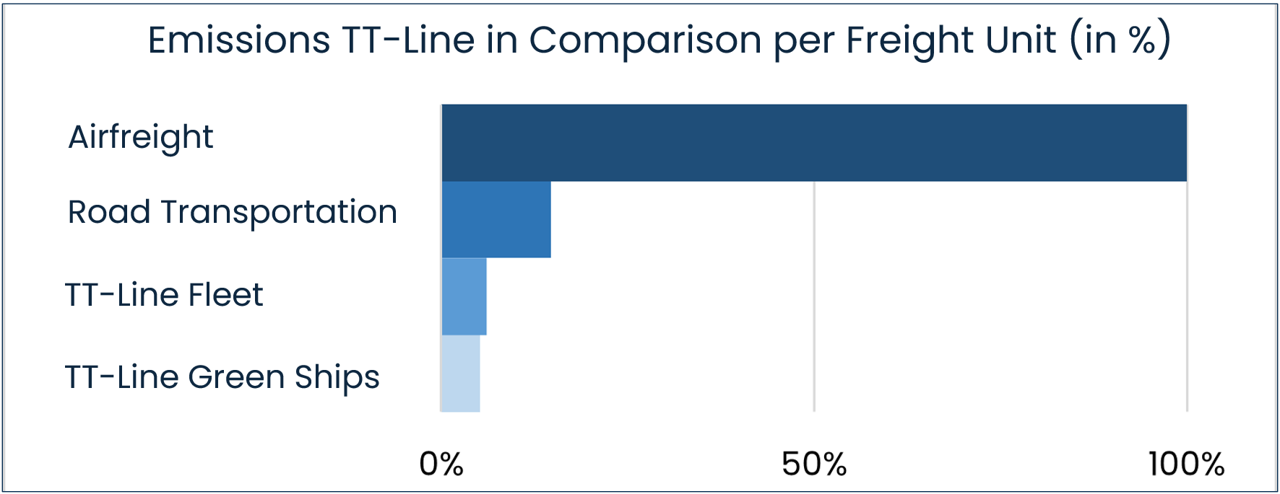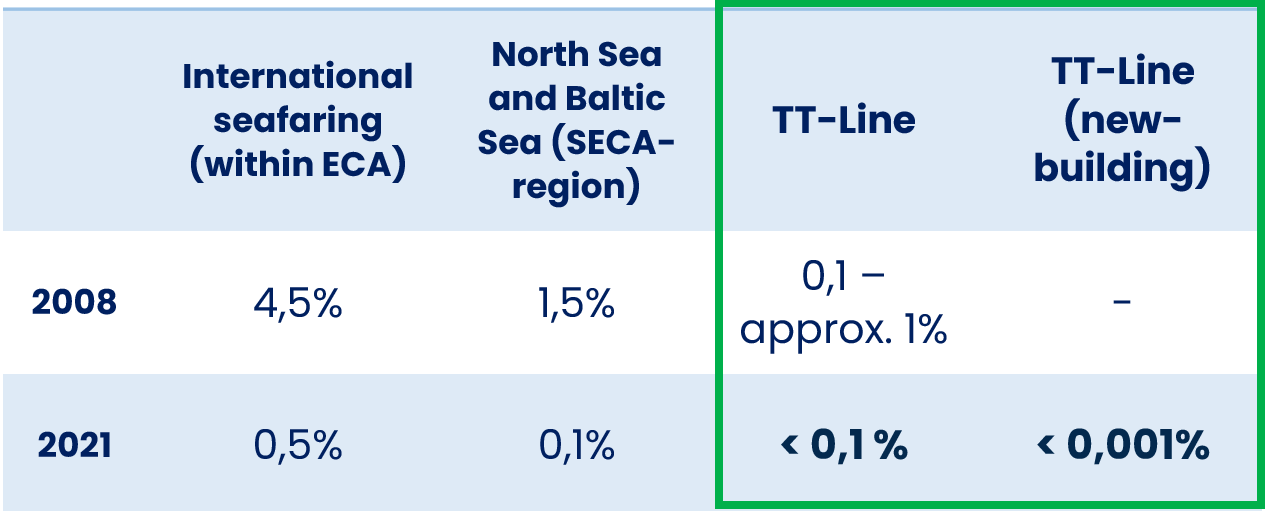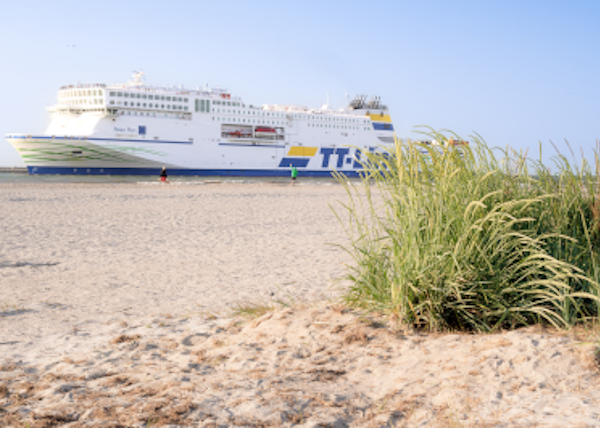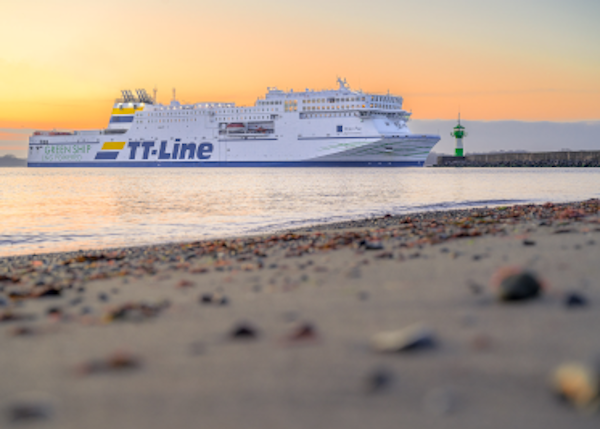Climate Action
We show responsibility and take action

TT-Line's responsibility
We are committed to take urgent action to combat climate change and its impacts. To achieve that, we are integrating climate change measures into our policies, strategies and planning. By adopting sustainable practices and implementing environmentally friendly initiatives, we do our part in tackling the issue of climate change.
It is our concern to improve education within the company among our employees as well as to raise awareness among our passengers, acknowledging the role that individuals play in addressing climate change. By engaging our passengers and promoting climate-conscious behavior, we hope to foster a sense of responsibility and encourage positive actions that can collectively contribute to mitigating the effects of climate change.
Constant reduction of CO2 emissions (gCO2/t*km)
This commitment to reducing CO2 emissions (gCO2/t*km) is firmly anchored in our corporate strategy and is accompanied by targeted investments in sustainable infrastructure and research.
Our goal: Reduction of CO2 emissions (gCO2/t*km) by 40% until 2035 compared to 2010
Since 2010, we have already managed to reduce our CO2 emissions (gCO2/t*km) on our Travemünde/Rostock - Trellborg routes by 35%. We are therefore confident that we can achieve our goal.


For more than 60 years, we have been thinking innovatively and acting responsibly and sustainably.
And we will continue to steer with full speed ahead.
We invest in a sustainable future!
Good to know
Calculation of CO2 emissions
The CO2 emissions are calculated according to the framework for the IMO EEOI (Energy Efficiency Operational Indicator).
Ships have the best environmental performance
Transporting goods by ship brings many advantages: excellent infrastructure with high reliability, fewer accidents, no traffic congestion, rest periods, and reduced noise. Ships are considered the most environmentally friendly mode of transportation. Due to their large carrying capacity, ships have the lowest emissions of pollutants per unit of cargo transported compared to trains, airplanes, trucks, and cars, thus achieving the best environmental performance.

The emission values for nitrogen oxides (NOx), particles, and particularly carbon dioxide (CO2) per ton of cargo transported are significantly lower on ships compared to other modes of transportation.
Sulfur emissions in the Baltic Sea
In the Baltic Sea, particularly strict regulations are in effect, monitored by the International Maritime Organization (IMO). A decision has been made to lower the maximum permissible sulfur content in ship fuels within Sulfur Emission Control Areas (SECAs) from 1.0% to just 0.1%.
Maximum sulfur content in fuel 2008 vs. 2021

TT-Line complies with or surpasses all national and international emission and environmental protection standards with its current fleet. With the introduction of our new Green Ships, the utilization of sulfur-free LNG significantly minimizes the release of local emissions like sulfur oxides and particulate matter, effectively eliminating them.
Because of the ability to run on Bio-LNG, CO₂ emissions can be cut by up to 200% compared to conventional fuels (from fuel production to emissions).
For a greener future
Emissions Trading System (ETS)
With the European Climate Law, the realization of the EU's climate target to reduce emissions in the EU by at least 55% by 2030 becomes a legal obligation. EU countries are working on new legislation to achieve this goal and make the EU climate-neutral by 2050.
Emissions Trading System (ETS) Read more
CO2 compensation
From now on, we will offer our passengers the possibility to purchase Liquified Biogas (LBG) in proportion to the amount of fuel used for their journey, when booking a crossing. LBG is produced from renewable resources and waste streams as municipal organic waste, sludge, manure and agricultural waste.
CO2 compensation Read more
To the next UN Sustainable Development Goal:
- UN Sustainable Development Goals
- Gender Equality
- Decent Work and Economic Growth
- Industy, Innovation and Infrastructure
- Responsible Consumption and Production
- Climate Action
- Life Below Water

